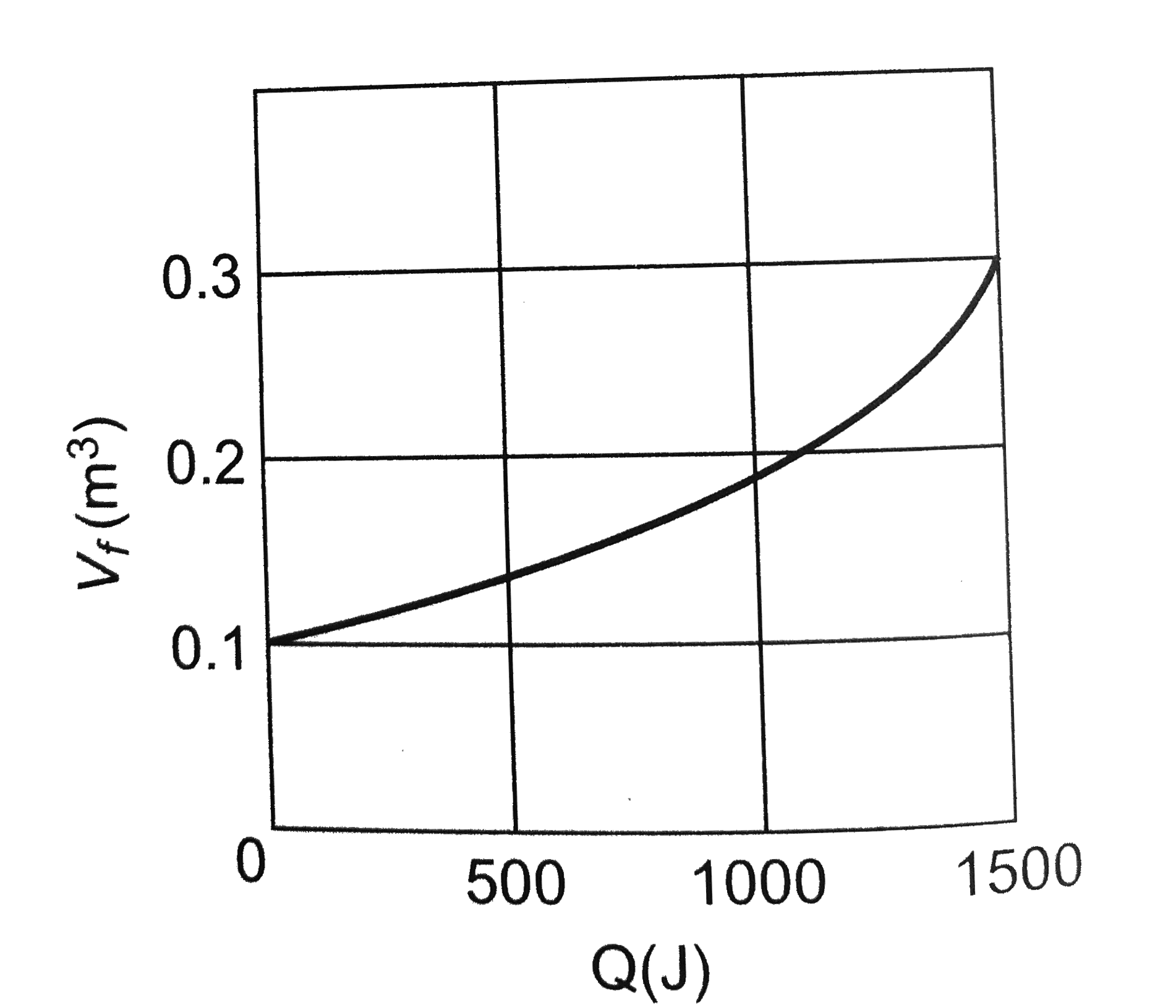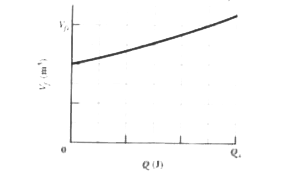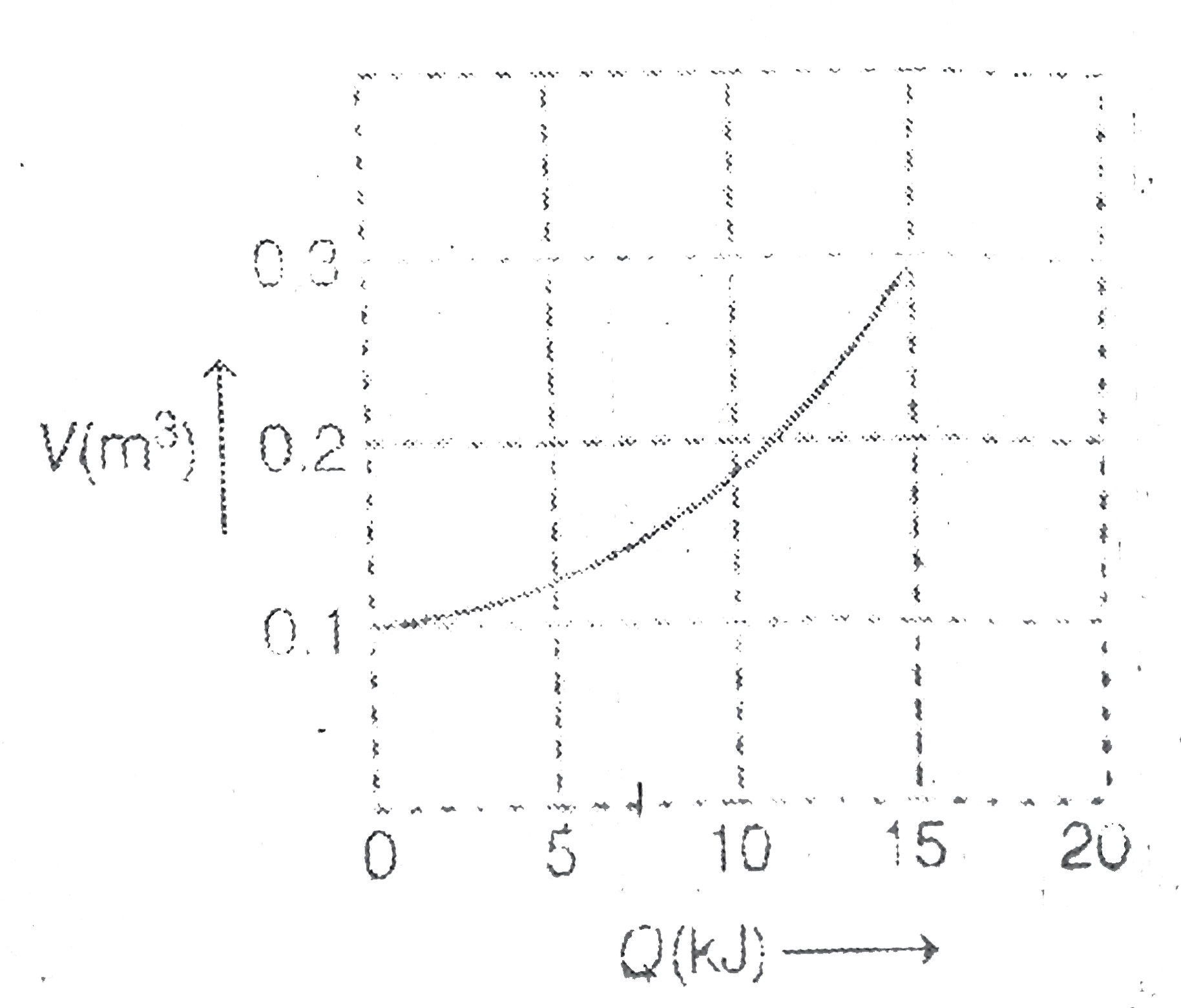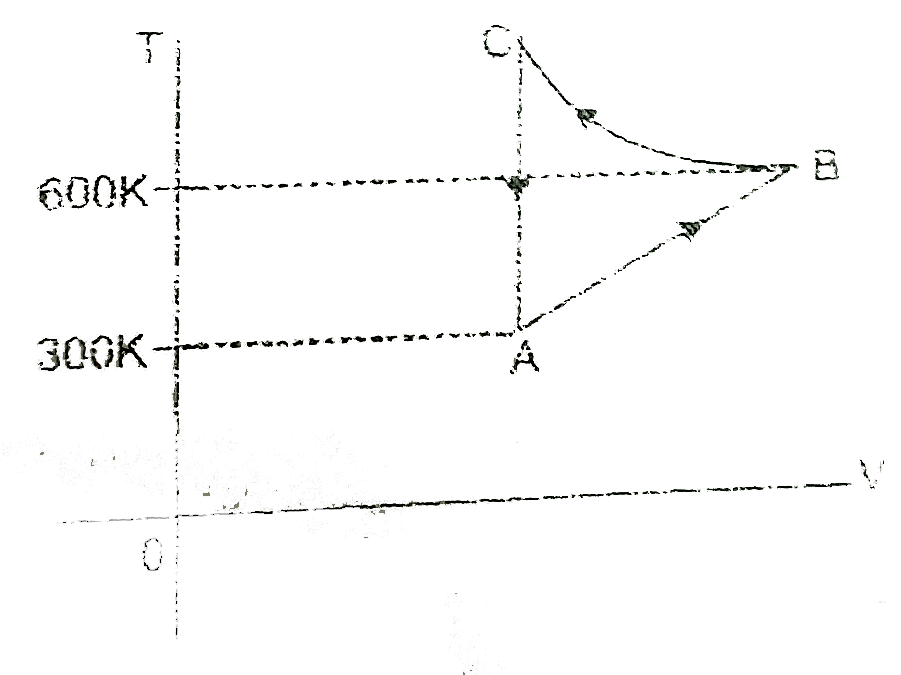Suppose 0.5 moles of an ideal gas undergoes an isothermal expansion as energy is added to it as heat Q. graph shows the final volume Vf versus Q. the temperature of the gas is (useIn9=2andR=253J/mol−K)

293K
360K
386K
412K
The correct Answer is:B
Q=W=nRTlnVfVt
T=QnRlnVf/Vt=15000.5×25/3×ln3
=15000.5×25/3×1=360K
Topper's Solved these Questions
- GEOMETRICAL OPTICSBOOK - ALLENCHAPTER - GEOMETRICAL OPTICSEXERCISE - EXERCISE -03
11 Videos
- GEOMETRICAL OPTICSBOOK - ALLENCHAPTER - GEOMETRICAL OPTICSEXERCISE - ASSERTION-REASON
40 Videos
- GEOMETRICAL OPTICSBOOK - ALLENCHAPTER - GEOMETRICAL OPTICSEXERCISE - EXERCISE -01
65 Videos
- CURRENT ELECTRICITYBOOK - ALLENCHAPTER - CURRENT ELECTRICITYEXERCISE - All Questions
427 Videos
- GRAVITATIONBOOK - ALLENCHAPTER - GRAVITATIONEXERCISE - EXERCISE 4
9 Videos
Similar Questions
Suppose 0.5 mol of an ideal gas undergoes an isothermal expansion as energy is added to it as heat Q. The given graph shows the final voiume Vf versus Q. The temperature(in K ) of the gas is (use ln9=2 and R=253 J(mol)−1K−1 ).
'(##CEN_KSR_PHY_JEE_C15_E01_003_Q02##)'
View SolutionSuppose 0.825 mol of an ideal gas undergoes an isothermal expansion as energy is added to it as heat Q. If Fig. 21-30 shows the final volume Vf versus Q, what is the gas temperature? The scale of the vertical axis is set by Vfs=0.30m3 and the scale of the horizontal axis is set by Qs=1800J.

View Solution
Knowledge Check
Consider isothermal expansion of 0.5 mole of an ideal gas when Q amount of heat is added to it. Following graph shows variation in volume V with Q. Find the temperature of the gas
(ln 3≈10,R=253J/mole−K)
 A360 KB260 KC390 KD490 K
A360 KB260 KC390 KD490 KOne mole of an ideal gas undergoes a process
P=P0−αV2
where α and P0 are positive constant and V is the volume of one mole of gas
Q. When temperature is maximum, volume isA√P03αB√P0αC√P02αD√P0αOne mole of an ideal gas undergoes a process
P=P0−αV2
where α and P0 are positive constant and V is the volume of one mole of gas
Q. When temperature is maximum, volume isA23P0BP0CP03D32P0
One mole of a monatomic ideal gas undergoes an adiabatic expansion in which its volume becomes eight times its initial value. If the initial temperature of the gas is 100 universal gas constant 8.0, the decrease in its internal energy, in , is__________.
View SolutionThe entropy of v=4.0 moles of an ideal gas increases by ΔS=23J/K due to the isothermal expansion. How many times should the volume v=4.0 moles of the gas be increased ?
View SolutionIn figure, a sample of 3 moles of an ideal gas is undergoing through a cyclic process ABCA.A total of 1500J of heat is withdraw from the sample in the process. The work done by the gas during the part BC is −PKJ.FINDP.(R=253J/moleK)

View SolutionEntrolpy change in isothermal expansion work of one mole of an ideal gas from volume V1 and V2 is given by
View SolutionOne mole of an ideal gas requires 207 J of heat to raise the temperature. If the same gas is heated at constant volume to raise the temperature by the same range, the heat required will be [R=8.3 J/mole K]
View Solution
